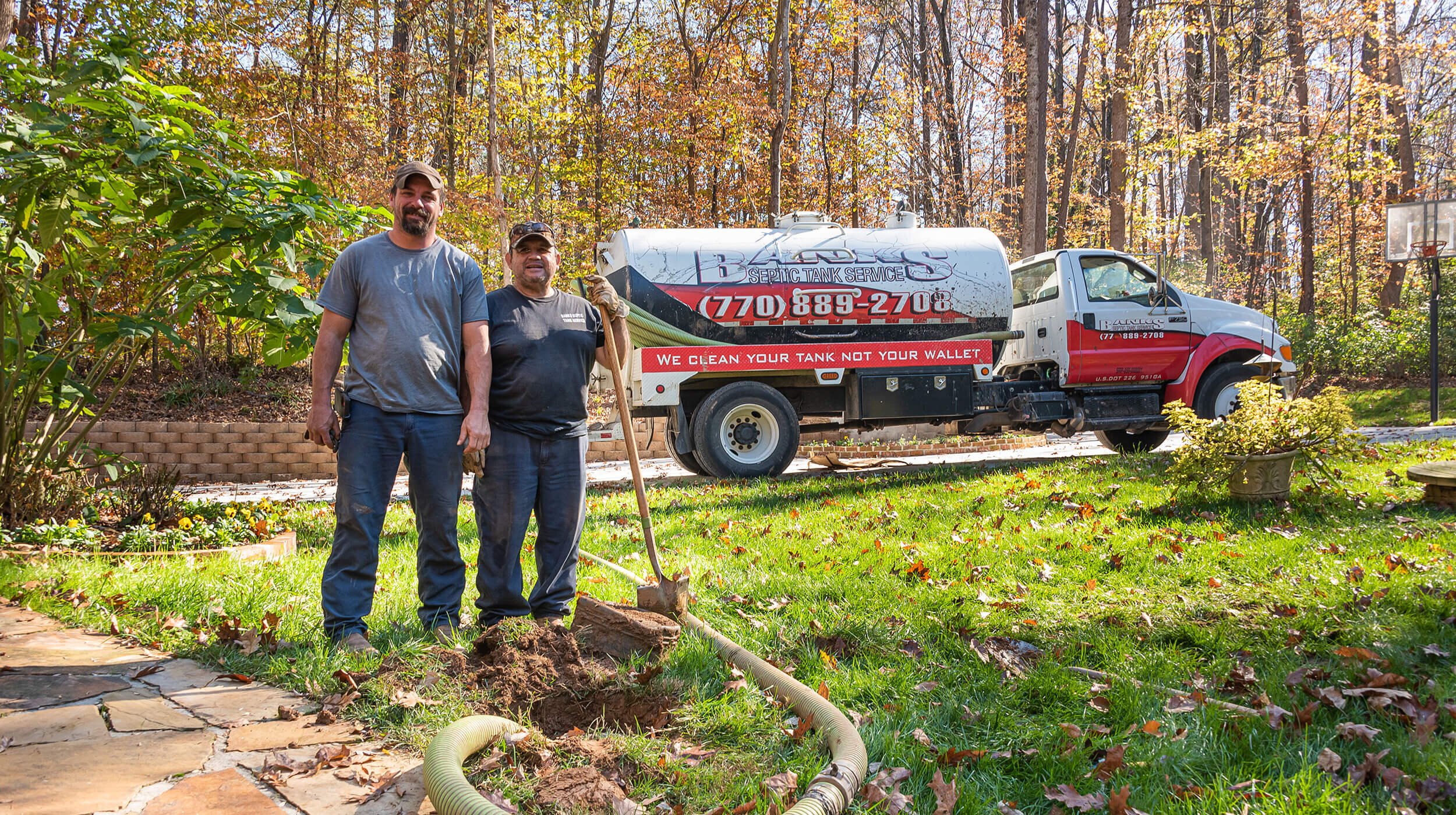
Septic Tank Pumping and Cleaning
What You Should Know:
Septic tank systems are installed in more than 21 Million homes across the U.S. Here, in our backyard, cities like Cumming, Milton, Alpharetta, Roswell, Canton, and beyond, we find underground and buried tanks to be the most prevalent–especially in the more rural areas where municipal sewer service is out of reach. Private sewage disposal is a growing trend among new homes with an estimated 33% of all newly constructed homes opting for onsite wastewater treatment.
When to Have Your Septic Tank Pumped and Cleaned
The EPA recommends that a septic tank should be inspected every two to three years, with mechanical pumping (sometimes called a ‘pump-out’) and cleaning typically required every three to five years to empty the tank. Smaller septic tank systems or those that experience very heavy use most often require pumping every year. If you happen to own a septic tank and system made up of electrical float switches, pumps, or mechanical components, these will need to be inspected more often — typically at least once a year.
Septic tank pumping or cleaning is the process of removing all of the sludge build-up from the bottom of your septic tank, which needs to be done before the waste builds up to the point where it blocks the main exit pipe through which liquids flow into the drain field.
So, when should you have your septic tank pumped?
Larger families and households create more waste and will fill up the septic tank system faster.
Sometimes, smaller family sizes generate more wastewater due to other reasons and this will affect how quickly the septic tank fills up.
If you home makes frequent use of garbage disposals, showers, baths and many toilets, then it is likely your septic tank will fill up quickly.
Larger tanks can store more sludge and waste while smaller tanks reach full capacity much faster. As a general rule-of-thumb, an average family size of 4 may have a 1,250-1,500 gallon tank and should expect to have your tank pumped every 3 to 5 years with typical usage.
What Septic Tank Size Do I Need?
How do I know what septic tank size I need for my home? This is a great question, and one we get asked often. As a general rule-of-thumb, the right answer is dependent on a few factors: the size (square-footage) of your home, the size of your family and the amount of water usage you typically use.
Most residential septic tanks range in size from 750 gallons to 1,500 gallons.
An average 3-bedroom home, less than 2500 square feet will probably require a 1000 gallon tank.
An average 4 or 5 bedroom home, less than 4,500 square feet will likely require a 1,500 gallon tank.
A family size of 5 or more may require a larger tank.
How Often Should You Pump or Empty Your Septic Tank?
This is a great questions we get asked often. If you schedule regular septic tank inspection by a licensed professional, they will be able to tell you when it is time to pump out your tank.
As a general rule-of-thumb, you should expect to empty out your septic tank once every three to five years. However, whether this should be done sooner or later depends greatly on the size of your house, the number of people living there and the range of everyday use.
How to Best Care for Your Septic Tank System:
The are several ways to proactively care for your septic tank system so it operates as effectively and efficiently as possible which greatly reduces the frequency with which septic tank pumping is required:
Limit your everyday water usage: While this might sound obvious, installing and using water-saving toilets, faucets and shower heads can greatly decrease the overall amount of water going into your septic tank system.
Reduce the amount of solid waste: Refraining from flushing anything other than toilet paper and waste, trapping hairs and films using drain traps, and throwing away solids rather than burdening your garbage disposal are all great ways to monitor the solid waste entering your septic system.
Guide rainwater, landscape water and other household projects such as washing cars or emptying your pool away from the drain field: If your home’s downspouts and lawn & garden water run into your septic system’s drain field, it hampers its ability to adequately remove water from the tank. Be sure to direct all drain water away from your septic tank’s drain field.
Refrain from disposal of any chemicals down your drain: Chemicals of all sorts can disrupt the microbial breakdown of your waste within your septic system. Ensuring only the proper waste and wastewater runoff enters your septic system’s stream gives the greatest chance of a long life to your septic system investment and health.
If you still have any questions after reading our advice about septic tank plumbing, cleaning or size recommendations for you, contact the Banks Septic team today. We will be more than happy to advise you on the best septic tank size, service or pumping recommendations for your property and specific needs.
For 25+ years, we have been one of Atlanta’s leading septic tank specialists. Let us know how we can help you today!
Whether you are simply due for a septic tank pump or are having problems with your septic system, get in touch, and we’ll give you a free estimate.
